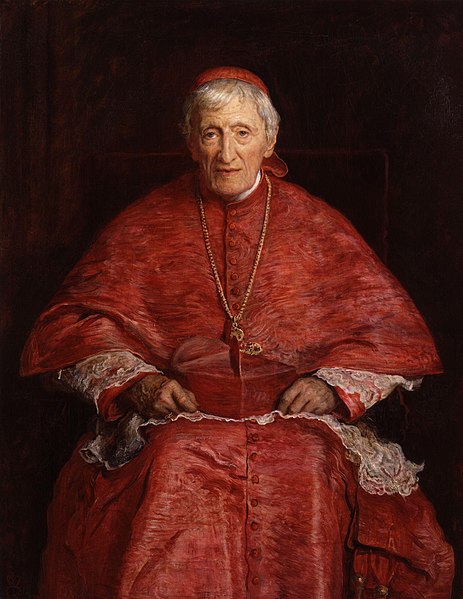The Dream of Gerontius, Op. 38, is a work for voices and orchestra in two parts composed by Edward Elgar in 1900, to text from the poem by John Henry Newman. It relates the journey of a pious man's soul from his deathbed to his judgment before God and settling into Purgatory. Elgar disapproved of the use of the term "oratorio" for the work, though his wishes are not always followed. The piece is widely regarded as Elgar's finest choral work, and some consider it his masterpiece.
Manuscript score, signed by the composer and the performers of the premiere
Elgar, around the time of composition
Cardinal Newman, author of the poem set by Elgar
Sir Edward William Elgar, 1st Baronet, was an English composer, many of whose works have entered the British and international classical concert repertoire. Among his best-known compositions are orchestral works including the Enigma Variations, the Pomp and Circumstance Marches, concertos for violin and cello, and two symphonies. He also composed choral works, including The Dream of Gerontius, chamber music and songs. He was appointed Master of the King's Musick in 1924.
Edward Elgar, c. 1900
Elgar's birthplace, The Firs, Lower Broadheath, Worcestershire
Elgar's parents, William and Ann Elgar
Edward and Alice Elgar, c. 1891






